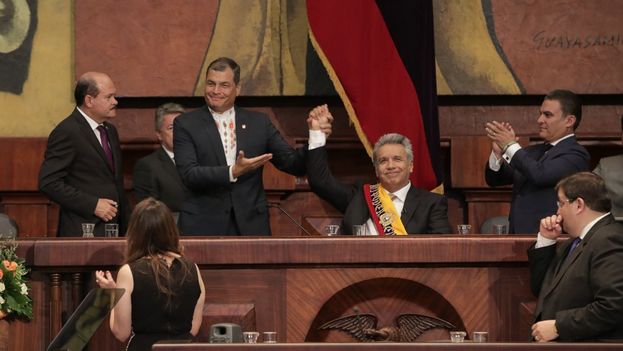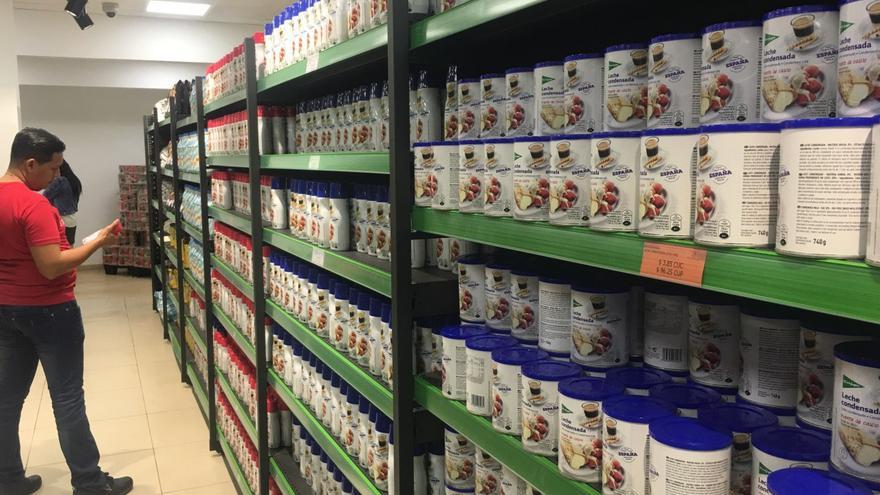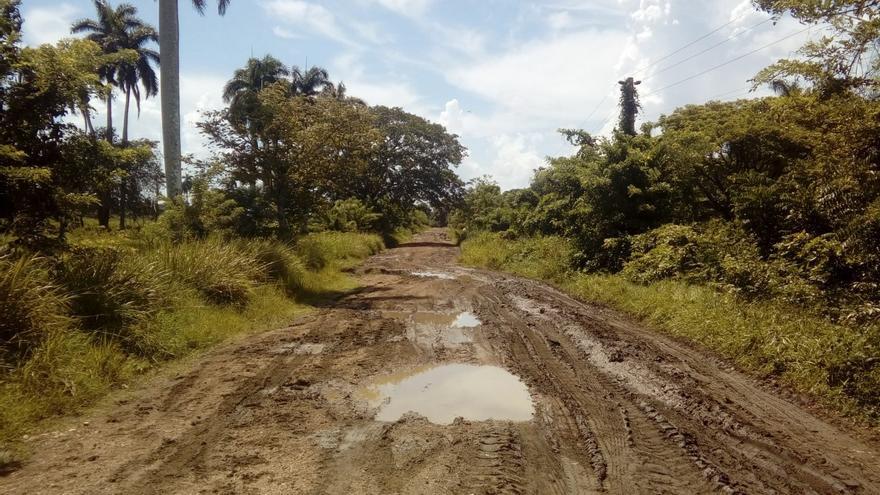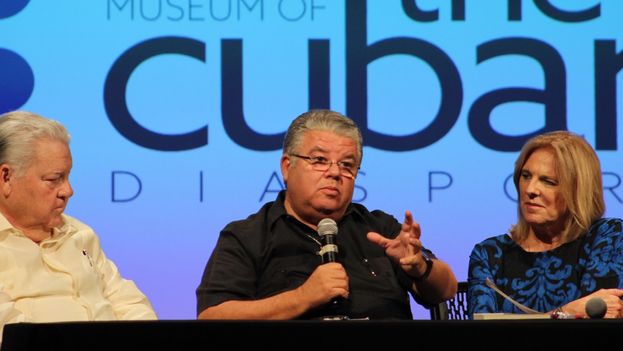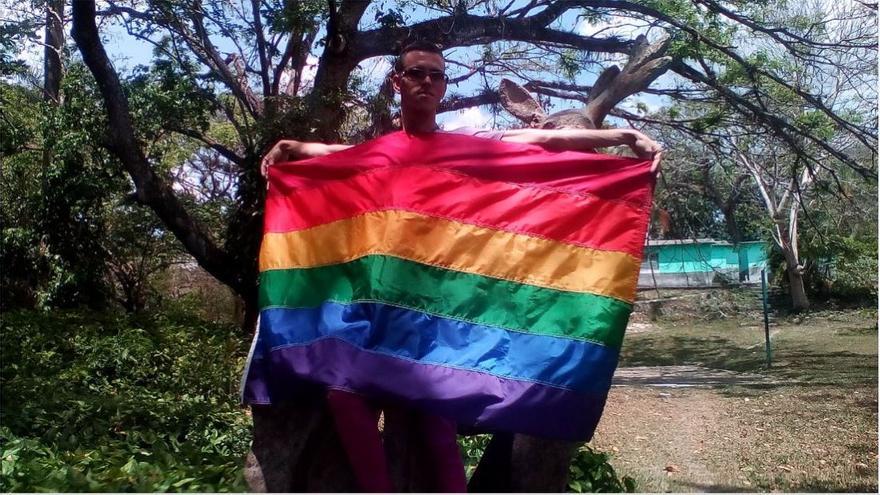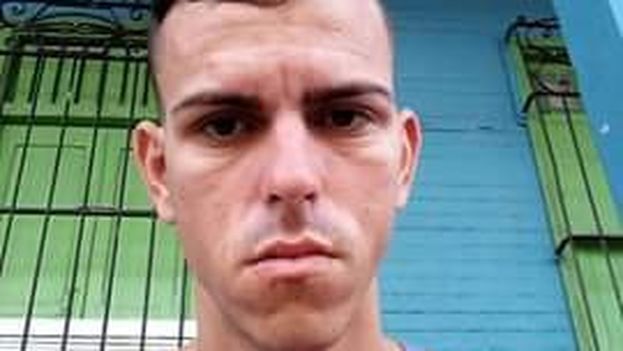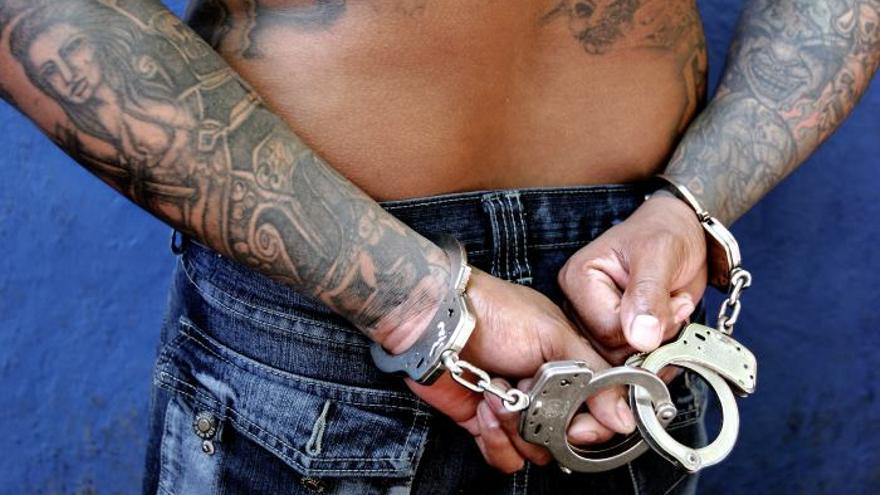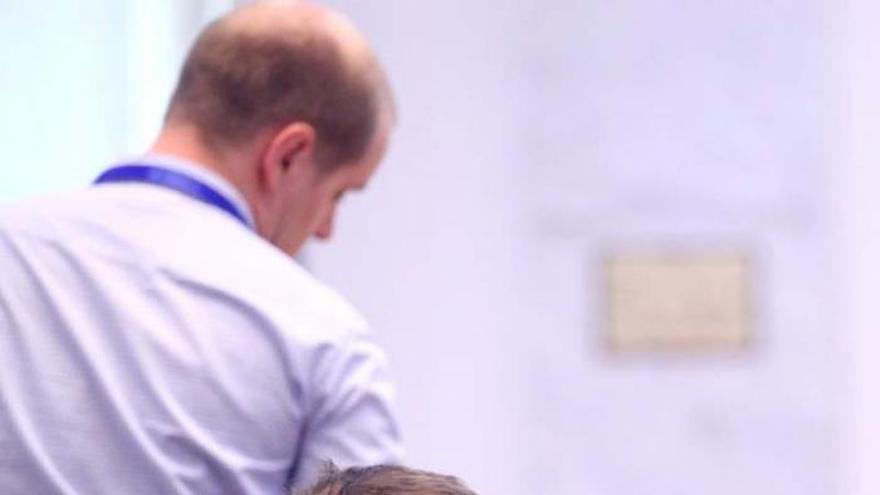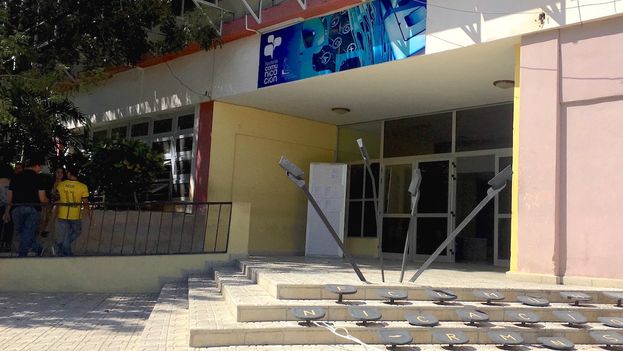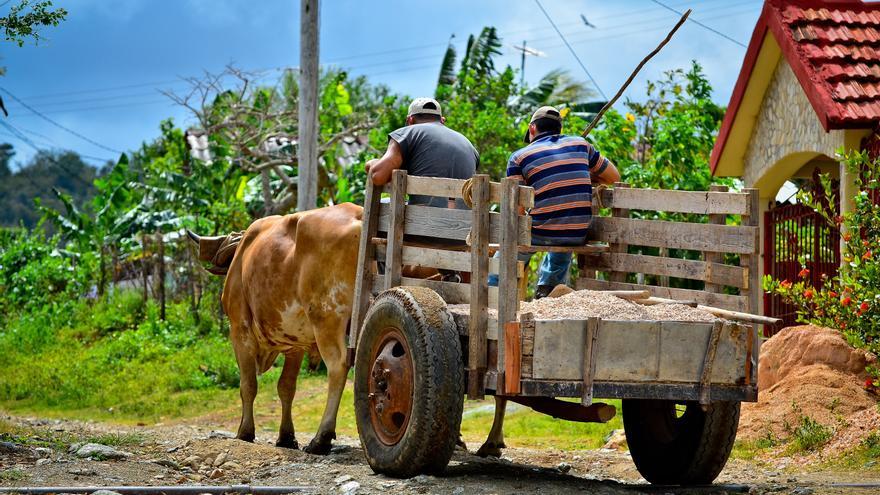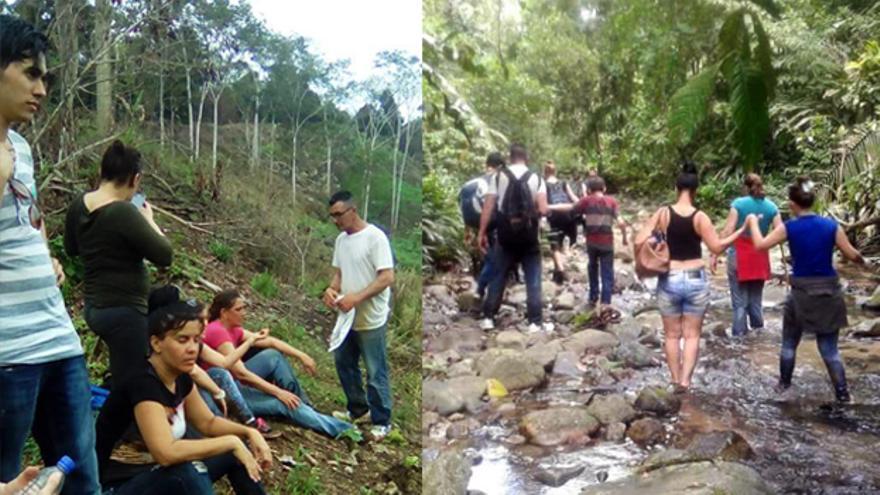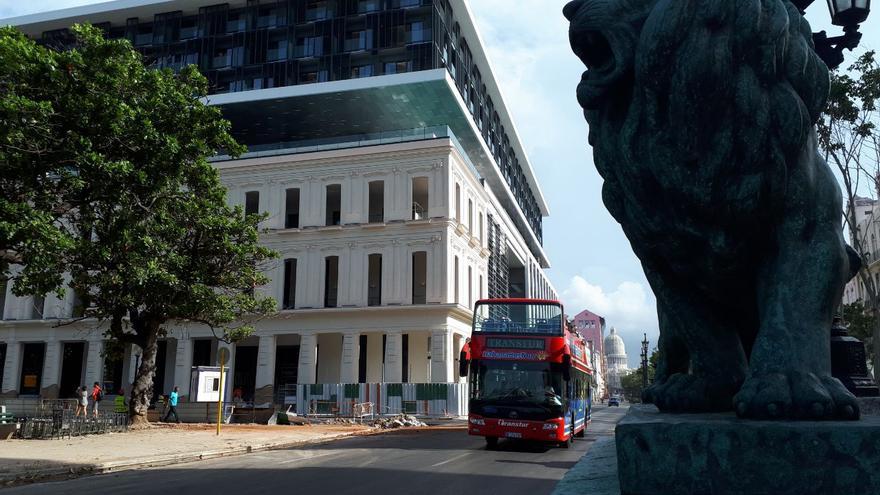That process of typing, on his sonorous Adler machine, the experiences accumulated in more than two decades of working in the press controlled by the Communist Party of Cuba (PCC), was happening at a time when the country was falling into the abyss of the economic crisis after the collapse of the socialist camp. So the sheets were filled amid the blackouts, shortages and long hours on an empty stomach.
In the library galleries full of volumes, the journalist found a long list of censored books, met other punished individuals, and even signed a letter of protest against the agreements of the Fourth Congress of the PCC. That new boldness cost him another administrative warning that convinced him to distance himself from any state workplace where he toiled with the volatile material of words and ideas.
Thus he became an elevator mechanic, the job he had when he wrote the first page of this novel starring his alter ego Antonio Martínez. Thus, that original text had all the traces of the appeal of a condemned man, of someone who feels that an unjust penalty has been applied to him and who hopes to be able to vindicate himself through his own version of the facts. He hoped that after reading it they would come to rescue him from his forced “pajama plan”*.
That original text had all the traces of the appeal of a condemned man, of someone who feels that an unjust penalty has been applied to him and who hopes to be able to vindicate himself through his own version of the facts
That character of accusation was lost as he added paragraphs where he verified, with each passage, that he, too, had been responsible for the construction of the mirage of the Cuban Revolution. Another conviction began to surface with each written syllable: the censors who had expelled him from the official press had given him the gift of a charter of freedom to do the journalism he had always dreamed of. Rather than suing them, he almost had to thank them.
Overcoming that first desire to display his innocence, Escobar concentrated on narrating the events that took him from a desk in the School of Journalism to a greasy cab where he adjusted the mechanism of an old elevator, while the neighbors shouted at him to get it working as soon as possible and a brigade leader looked with scorn on that reporter fallen into disgrace.
It was a journey from the summit to the abyss, from being a reliable compañero to a dissident. The descent from the cloud of privileges, to the stinking hole of the counterrevolutionaries. In short, letter by letter, he wove the story of the journey to the infernos of real socialism and the lowest of its circles, where the renegades wander, persecuted by insults and reprisals.
Escobar dispenses with the tricks of language; his is a prose indebted to journalism, devoid of ornaments and without metaphorical boasts. His intention was never to transform into literature the uneasy journey of a communicator, but to make the fiction boil over with objectivity and to bear a part of those words that he had not been able to sneak into the national press.
The writing of this journey from revolutionary faith to apostasy began when the Berlin Wall had already fallen and the Soviet Union had dismembered itself without even one of those proletarians of the red flag doing anything to prevent it. The events surrounding Reinaldo Escobar fit the predictions ventured by Antonio Martinez while listening from the press room, as the cracks of the Cuban system opened.
Escobar dispenses with the tricks of language; his is a prose indebted to journalism, devoid of ornaments and without metaphorical boasts
Completing each chapter became a struggle against the clock, driven by the mistaken feeling that Castroism was living its final years and this novel must be finished before the system that condemned its author to ostracism expired. It was the little victory of the ousted journalist: to sketch some letters of what would be the collective epitaph of a chimera.
The exercise demanded more than bravery. He suffered so many interruptions, especially those stemming from the numerous friends who filled his apartment in search of a space of freedom in that suffocating Cuba of the nineties, that in order to concentrate on his work he locked himself in a room for weeks, leaving a warning sign the he needed “absolute tranquility.” The message was in vain, because in Havana, in 1993, peace was as scarce as food.
In this context, La Grieta (The Crack) – which at that time carried the significant title Pages from the Pit – had to deal not only with the obstacles imposed by a disintegrating everyday life, but also with surveillance. Reinaldo received frequent “control visits” from a State Security official who shared his name and who asked, insistently, if he was writing “any book.”
Finally that unwanted “guardian angel” learned from other sources that there was a novel under development, something that sealed the fate of that first version, typed without copies. In May of 1994, when the author traveled for the first time outside of Cuba, bound for Berlin, his name echoed on the loudspeakers of the José Martí International Airport. A uniformed man confiscated the novel he was trying to get out of the island.
All that Escobar has left from that seizure is an official document in which the General Customs of the Republic provides a receipt for having seized some “some sheets with writing typed by machine” (sic). Later, in front of the first computer he had touched in his life, lent to him by a friend in Frankfurt, he began the hard task of trying to remember the novel that had been taken from him. From this effort of memory, the current text was born.
Reinaldo received frequent “control visits” from a State Security official who shared his name and who asked, insistently, if he was writing “any book.”
With the need to, once again, put in black and white the book that had been finished, the author decided to reshape the whole plot. He applied the scissors with great daring, decided to use the real names of most of the characters which, in the first version, he had changed for discretion, and present the protagonist with less heroism and more guilt.
The rewriting of La Grieta took more than two decades. During this time, Escobar could not hang a “do not disturb” sign to fully immerse himself in his endeavor, but rather was battered by the hurricane winds of life. His work as an independent journalist, which began with a collaboration with The Guardian in January 1989, led to several unsettling situations.
The Black Spring of 2003 arrived and the author watched as several colleagues were condemned to long prison terms and Fidel Castro tightened the repressive screws of the system. At that time, not even a memory was left what had been experienced in the years when the winds of Glasnost were blowing over Cuba and many had opted to create a press more attached to reality.
The majority of those reporters, editors and photographers who, influenced by the Soviet Perestroika, had tried to publish on the national plane more critical reports, bolder columns or more daring images, had ended up emigrating, or had locked themselves in self-censorship or had made the leap to independent journalism where they played with their own freedom every day.
The story of Antonio Martínez took on other connotations in these new circumstances. It was no longer just about the troubles of a university graduate who wanted to apply in practice what the manuals had taught him in school, but of a survivor. A Cuban who had gone through the stages of fascination, and then doubt, to rejection. His life was a testimony of disenchantment.
The story of Antonio charged other connotations in these new circumstances. It was no longer just about the troubles of a university graduate who wanted to apply in practice what the manuals had taught him in school, but of a survivor.
The pressures of reality on the fiction he was writing shaped La Grieta as a map of disenchantment, which marked the path followed by a young man who hoped to make an authentically revolutionary journalism and ended up being labeled as an “enemy.” As they peruse its pages, readers will go through different stages with respect to the protagonist; sometimes they will be sympathetic and at others they will want to insult him for harboring so much naiveté.
The author has not wanted to misrepresent those illusions, nor to present himself as someone who always knew that the communist utopia was impracticable and that underneath the false slogans of a system for the humble, the hidden reality was the construction of a calculated totalitarianism. Instead of the cynical look that his later experiences might have given him, Escobar prefers to assemble Martinez’s character with his real elements of ingenuousness.
That gullibility, shared by millions of Cubans during the first years of the Revolution, is what leads the protagonist to want to use his journalism to show what is working badly, in order to fix and rectify it. At the beginning, he falls into the trap of thinking that the greatest problems were derived from an incorrect application of the doctrine and not from the system itself.
In his dreams, he imagined that he would run into someone from the nomenklatura to whom he could explain the damage that bureaucrats and extremists caused the Revolution by distorting its precepts when putting them into practice. He speculated that if he could manage to explain to the leaders the inconsistencies between the proposed goal and the path that was being taken to reach it, surely the course could be corrected.
An attitude that repeats in his romantic life, in which he tirelessly seeks a love that fits the ideal mold that has been shaped from the borrowing of verses from Vicente Huidobro, the opinions of his mother, and the idea of an inseparable compañera from official propaganda. That passionate fantasy also ends – at least in the novel – shattered against the sharp rocks of reality.
In the style of a tropical Milan Kundera, Escobar is unveiling the successive masks worn by many of the characters to survive professionally and socially
In the style of a tropical Milan Kundera, Escobar is unveiling the successive masks worn by many of the characters to survive professionally and socially. Opportunism, indolence and even radicalism are some of the obligatory covers for the political carnival of which he is a part. Sometimes he can see the face beneath those masks and he feels the urgent desire to flee in terror.
Although La Grieta is a novel full of dramatic moments, it is not exempt from those tragicomic instants derived from the totalitarian context. One in which the dilemma of whether to put butter or mayonnaise on the bread of the workers’ snacks encapsulates the dilemma between the freedom of opinion and the militant discipline that the regime expects from its employees.
Untimely questions, misguided sincerity, excessive self-criticism and the desire to improve society from the pages of newspapers are setting Antonio Martínez apart. With keenness, the censors notice the danger that exists in an individual who has swallowed the speeches delivered from the podiums. His end is defined as soon as they recognize a true believer.
This novel, for all that, is a description of a professional and social suicide. The precise narration of how the flame of a utopia burned the wings of a generation of Cubans, with the consent and approval of many of them. Reinaldo Escobar, who burned in that fire, has had the courage to tell the story.
*Translator’s note: “Pajama plan” is a common Cuban euphemism for the status of public employees forced out of their positions for political reasons.
______________________________
The 14ymedio team is committed to serious journalism that reflects the reality of deep Cuba. Thank you for joining us on this long road. We invite you to continue supporting us, but this time by becoming a member of 14ymedio. Together we can continue to transform journalism in Cuba.

![]() 14ymedio, Ernesto Santana, Havana | 17 September 2018 — The last movements in Cuban chess have been three great escapes—in consecutive years, Yuniesky Quesada, Leinier Domínguez and Lázaro Bruzón—something that could be called the “American exit.” The game is in check, but in reality it is in keeping with the logic of all Cuban sports, where emigration and decline don’t stop.
14ymedio, Ernesto Santana, Havana | 17 September 2018 — The last movements in Cuban chess have been three great escapes—in consecutive years, Yuniesky Quesada, Leinier Domínguez and Lázaro Bruzón—something that could be called the “American exit.” The game is in check, but in reality it is in keeping with the logic of all Cuban sports, where emigration and decline don’t stop.
